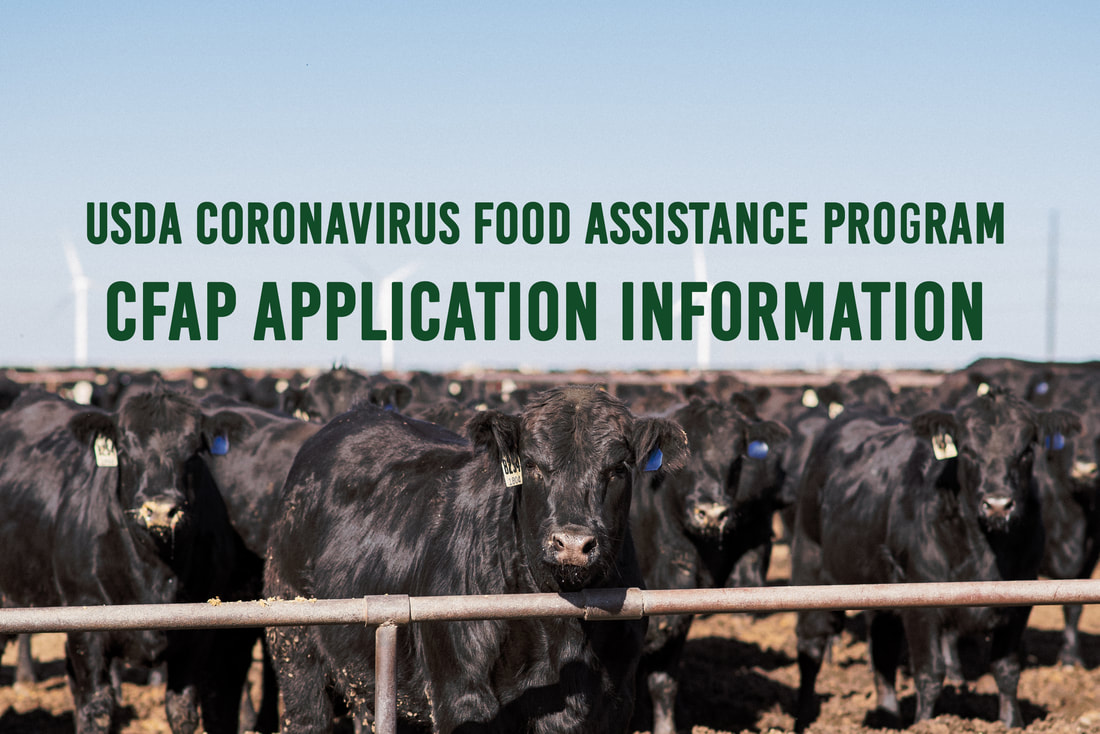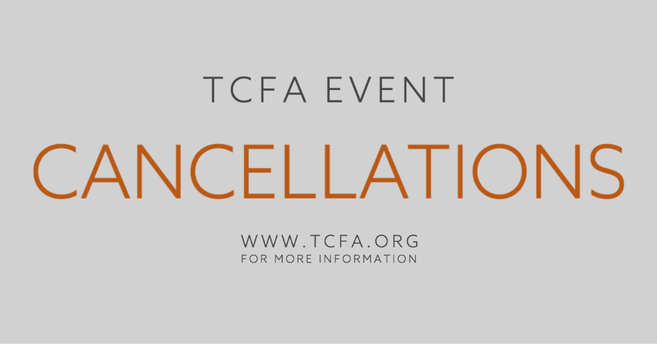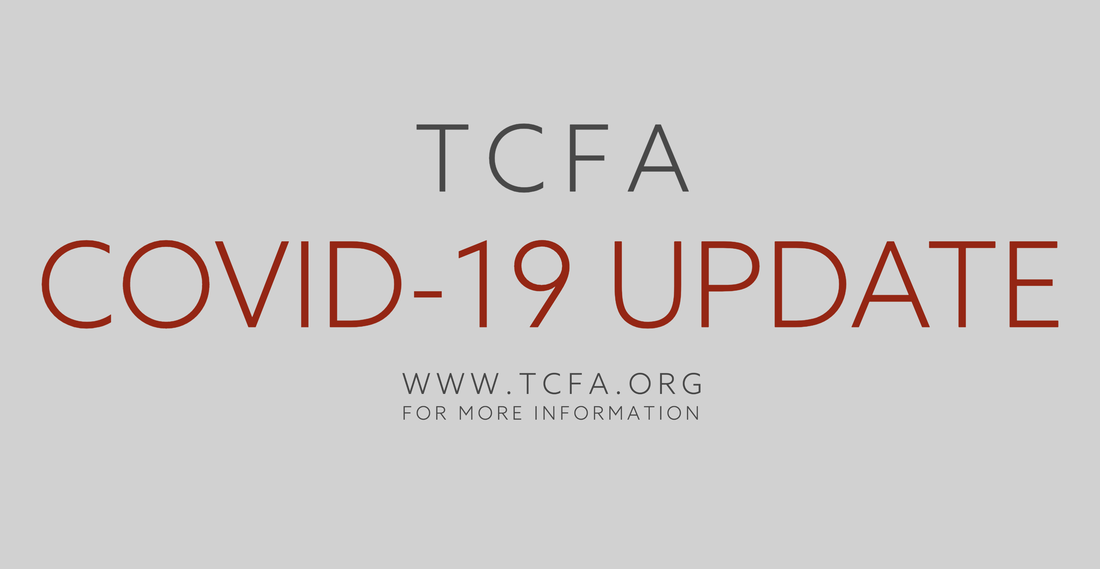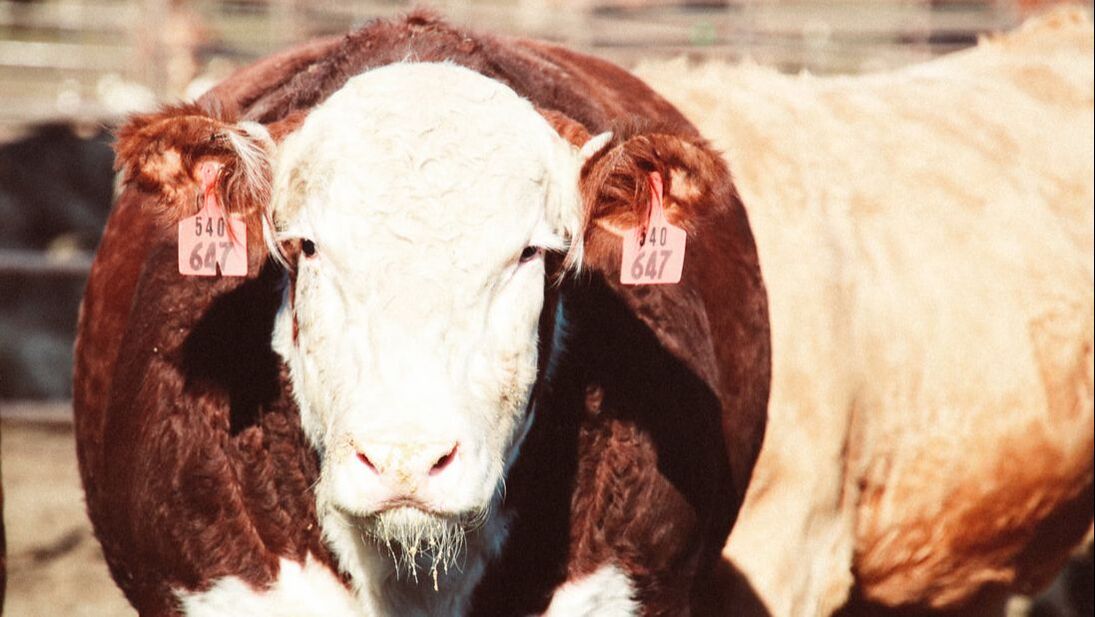|
The Coronavirus Food Assistance Program (CFAP) will aid agricultural producers impacted by the effects of the COVID-19 outbreak. On May 19, 2020, USDA published a rule that specifies the eligibility requirements, payment calculations and application procedures for CFAP. The program will be administered by the USDA-Farm Service Agency (FSA). To help inform you of the program requirements and application process, we created a short webinar outlining the three-step process. We've also outlined the steps below, and a printable version can be downloaded here. STEP #1 – Locate your local FSA service center USDA service centers are open for business by phone appointment only. FSA is also working with producers by phone, email, mail and fax. STEP #2 – Submit completed forms to FSA
Complete the forms below and submit them to your local service center. If you are already established with FSA, it is likely many of these forms are already on file at your local FSA service center. However, if your average AGI for the previous three years is more than $900,000, Form CCC-942 must be signed by your CPA or attorney to verify that 75% of your income is from agriculture.
2 Comments
The following is a status update on TCFA events in light of concerns surrounding COVID-19. Please know that the health and safety of participants is our number one priority. This list is subject to change as we learn more. Canceled TCFA Fed Beef Challenge - Originally scheduled for April 8 TCFA Feedyard Tech, Spring Semester - Originally scheduled for April 14-16 and 21-23 TCFA Spring Safety Seminar TCFA Feedyard Camp - Originally scheduled for June 23-26 On Schedule TCFA Junior Fed Beef Challenge - Contest day July 24 TCFA Convention - October 4-10, Grapevine, Texas
Ongoing efforts to keep you informed on news surrounding the beef industry and COVID-19.
May 13, 2020
Amarillo, Texas - The Texas Cattle Feeders Association (TCFA) today called on U.S. Agriculture Sec. Sonny Perdue to remove payment limitations on producers that have suffered extraordinary losses as a result of the COVID-19 pandemic.
“We are grateful for Sec. Perdue’s support of U.S. agriculture and the cattle industry during these unprecedented times, and appreciate USDA’s payment assistance,” Paul Defoor, TCFA chairman, said. “We understand that USDA is in the difficult position of allocating assistance levels for each segment of agriculture; however, the $125,000 payment limit per commodity fails to recognize the size and scope of the many cattle operations in Texas and across the nation. The proposed limit will preclude most cattle feeders in Texas, Oklahoma and New Mexico from receiving any meaningful assistance relative to their actual losses.” Earlier this month, a study led by Dr. Derrell Peel with Oklahoma State University projected market losses of $13.6 billion for cattle producers — $247.15 per head for cow-calf producers, $159.98 per head for stocker operators, and $205.96 per head for cattle feeders. TCFA members annually market more than 6,000,000 fed cattle or 28% of the nation’s fed beef. Under proposed payment limitations, the average TCFA feedyard (35,000 head capacity) will recoup less than 1% of actual losses. In addition to feedyard losses, the average producer who owns and markets 2,500 head of cattle in a custom feedyard will recover less than 25% of their loss. A mere 600 head will hit the $125,000 payment limit. “Our industry is facing unprecedented times in the wake of market disruptions. While the relief is welcomed, the caps simply aren’t substantial enough to stabilize the cattle feeding industry — an essential component of our nation’s food supply,” he said. Current USDA disaster assistance programs, including the Emergency Assistance for Livestock andthe Livestock Indemnity Program, do not impose payment limitations due to the extraordinary and unforeseen nature of producer losses. “USDA has precedence for not establishing payment limitations on producers who have suffered extraordinary losses as a result of disasters. Disaster assistance in response to COVID-19 should be no exception,” Defoor said. Background on USDA Assistance On April 19, 2020, USDA announced the $19 billion Coronavirus Food Assistance Program (CFAP). The program uses funds provided in the Coronavirus Aid, Relief, and Economic Security Act (CARES), the Families First Coronavirus Response Act (FFCRA), and other USDA existing authorities. The program provides $16 billion in direct support based on actual losses for agricultural producers where prices and market supply chains have been impacted by COVID-19. This includes $9.6 billion for the livestock industry, specifically $5.1 billion for cattle. ### Texas Cattle Feeders Association (TCFA) represents the cattle feeding industry in the three-state region of Texas, Oklahoma and New Mexico. This area, known as Cattle Feeding Country, is the largest cattle feeding region in the U.S. A multi-billion-dollar industry, it annually markets more than 6 million fed cattle – approximately 28 percent of the fed cattle produced in the United States.
By Carmen Fenton, director of communications, TCFA
When I wrote this a few months ago, I had no idea what our nation, our world and our industry would be facing amid the coronavirus outbreak. Like many of you in agriculture, I’m not on the ranch, at the feedyard, the packing plant or the grocery store. I’m not on the front lines, and honestly, working from a computer screen feels so insignificant during a time like this.
So, what can I do to help the cause? Well, to start, I can stay home. There are thousands in our industry who cannot stay home. America depends on them to do what is necessary for all of us. When you stay home, you are protecting them. Not everyone can stay home, but I can. I can also remind everyone that beef is healthy and plentiful. The U.S. production chain is unmatched in terms of efficiency, and producers are working around the clock to get beef to you. I know there are empty meat cases in parts of the country, but rest assured that more is on the way. Also, our beef supply is safe. Public health and food safety experts do not have any evidence of food or food packaging being associated with transmission of COVID-19. However, we do know, that like other viruses, it is possible that the virus that causes COVID-19 can survive on surfaces or objects. This is why it is critical to practice good hygiene and properly cook meat. When cooking, be sure to use a food thermometer to ensure a safe internal temperature. Additionally, always follow the 4 key steps of food safety – clean, separate, cook and chill. Additionally, I can reassure you that feeding your family beef is a good decision. Beef provides nutrients we all need, particularly, protein, zinc and iron. These are key ingredients for a strong immune system, active lifestyle, brain development and are often lacking in diets of kids and teens. For older adults, getting the right amount of protein becomes even more important. Protein rich foods like beef help fight off diseases like sarcopenia (loss of muscle mass), type-2 diabetes and osteoporosis. Here are a few more quick facts to remember about beef.
As we all try to figure out this temporary, new normal, please know that TCFA will continue to provide you with accurate, timely information so you can make the best decisions for your family. |
Categories
All
Archives
June 2024
|
About TCFA |
Get Involved |
|





